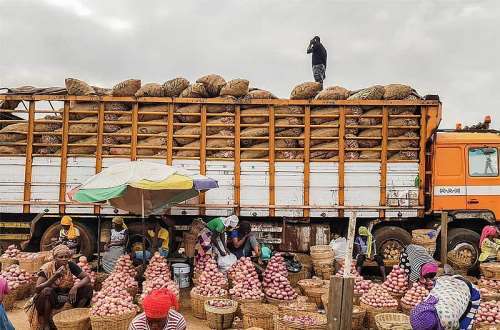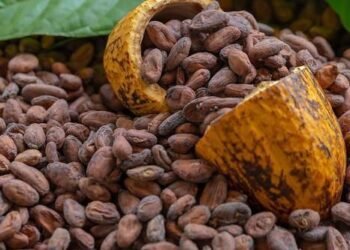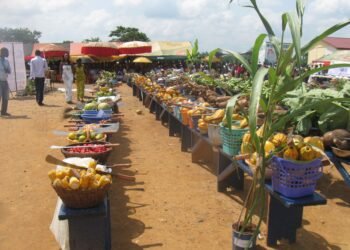President of the Peasant Farmers Association of Ghana (PFAG), Dr Charles Nyaaba, has called on government to support farmers in the country with requisite resources in onion production.
According to him, the country has a huge potential to produce onions in commercial quantities and be self-sufficient. However, he stated that some policies initiated by government has impeded the success of onion production.
Reacting to the coup in Niger which has stalled the transportation of onions to Ghana, Dr Nyaaba indicated that he feels ashamed that Ghana panics at the least sign of shortage of farm produce and run to other countries that are supposed to depend on Ghana for some of these commodities.
In light of this, he emphasized the need for government to institute the appropriate measures to ensure development of onion production.
“For we the farmers, we think this is a golden opportunity. My only appeal to the ministry of food and agriculture is that they should try to support us with the seed, water supply system and with the knowledge. Once we do that, we will be able to increase our current yield of between 10 metric tonnes to 35 metric tonnes that Nigeriens are doing because our lands are more fertile than those lands…”
Dr Charles Nyaaba
Dr Nyaaba lamented that Ghana has lagged behind in ensuring sufficiency when it comes to food supply. He revealed that some three months ago, when the Boko Haram caused havoc in Burkina Faso, there was shortage of tomatoes in Ghana, since it imports from the francophone country. However, he noted that Burkinabe farmers some years ago, came to Ghana to learn how to produce these tomatoes.
“When you talk of onions, I think we have more fertile lands for onion production than all the countries we import the onions from. It will take the white Volta basin, along that, all those places are fertile lands for onion production. You go to the Ashanti region, areas like Agogo – fertile lands for production. You come to even the coastal area, Ada, Hohoe and all these areas have the potential for onion production, yet we’ve not been able to explore those potentials.”
Dr Charles Nyaaba
Elaborating on the need to have foolproof policies, Dr Nyaaba attributed the “low production of onions partly to our policies”, especially the focus on particular crop commodities. Citing the Planting for Food and Jobs, which was looking at actually promoting staple food production, he stated that even though onions were listed as one of the vegetables to be considered under the programmes, no money has been invested into onion production.
“… The focus is only maize, rice and soya bean. So, those who produce onions locally are the peasant farmers, of which majority of them are women and producing less than one acre per person. Now, onion production is highly profitable and at the same time highly intensive which requires very serious attention for you to be able to get your maximum yield. The variety that we produce in Ghana, that’s the Bawku red, even though the yields are very low, the one that we always get from the Niger, they seem to get one bag for GHC250 and you need three to cultivate one acre.”
Dr Charles Nyaaba
Post-harvest losses in onion production
Furthermore, Dr Nyaaba emphasized the cost-intensive nature of onion production which demands application of pesticides to control pest, preparation of the land and also the need for regular water supply. He noted that these are some of the things the average farmer has to contend with because there’s no government investment in that area.
“Post-harvest losses in onions is also very serious. Even though we produce more, we lose about 50% due to post-harvest losses. So far, data suggests that our total onion production in Ghana is about 8,200 acres, and this one, we are doing only about 144,000 when countries like Niger is doing closer to 2 million… It’s not the case that they have more potential for onion production than we do…”
Dr Charles Nyaaba
READ ALSO: GHC60.8 Billion BoG Losses Would Have Built 3, 474 Agenda 111 Hospitals- Sam George























